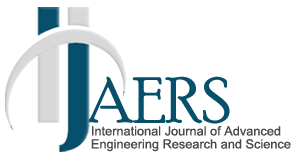Epistemological Assumptions of Perception of Sustainable Development through Environmental Sociology |
| ( Vol-8,Issue-4,April 2021 ) OPEN ACCESS |
| Author(s): |
Carlos Alberto Paraguassú-Chaves, Fábio Robson Casara Cavalcante, Carla Dolezel Trindade, Simão Aznar Filho, Ana Maria Morais da Fonsêca Cavalcante, SÃlvia Bezerra de Góes, FabrÃcio Moraes de Almeida, Lenita Rodrigues Moreira Dantas |
| Keywords: |
|
environmental sociology, interdisciplinarity, sustainable development. Epistemology. |
| Abstract: |
|
The aim of this paper is to discuss the epistemological bases of sustainable development from the perspective of environmental sociology. This is a literature review, descriptive, qualitative, interdisciplinary, systemic and holistic study. The subject of interdisciplinarity is still not fully understood today because there is no consensus around the epistemological debate. The interdisciplinary view is accepted by some thinkers as a kind of neopositivism. Environmental sociology also emerged linked to the epistemological discussion of the process of changing the scientific approach in addressing complex problems that strengthen the interdisciplinary movement in the field of knowledge, and although there is no consensus on environmental sociology, it highlights its importance for the discussion of the role of man and his interface with nature, meanwhile sustainable development, finds in the socio-environmental variable one of the central axes of scientific discussion about the pragmatism of its positioning, which for some authors is characterized as utopian. Understanding and explaining the complexity around the theme of environmental sociology is, above all, an exercise of reflection on the ethics of man as an integrated social being and interconnected with the natural environment. |
| Article Info: |
|
Received: 09 Dec 2020; Received in revised form: 15 Feb 2021; Accepted: 19 Mar 2021; Available online: 08 Apr 2021 |
|
|
| Paper Statistics: |
| Cite this Article: |
| Click here to get all Styles of Citation using DOI of the article. |
- Track Your Paper
- editor.ijaers@gmail.com
- ISSN : 2349-6495(P) | 2456-1908(O)



Advanced Engineering Research and Science